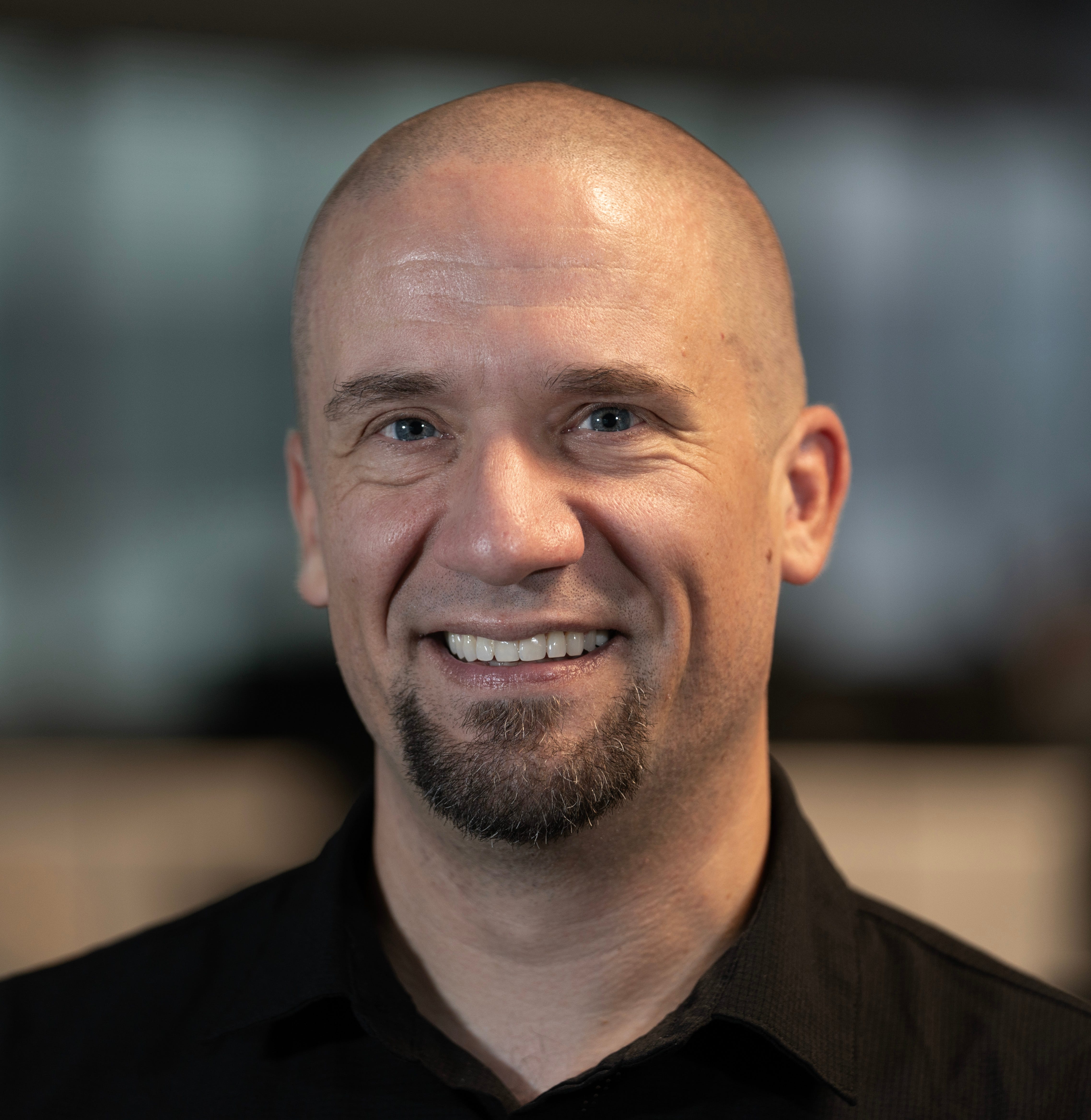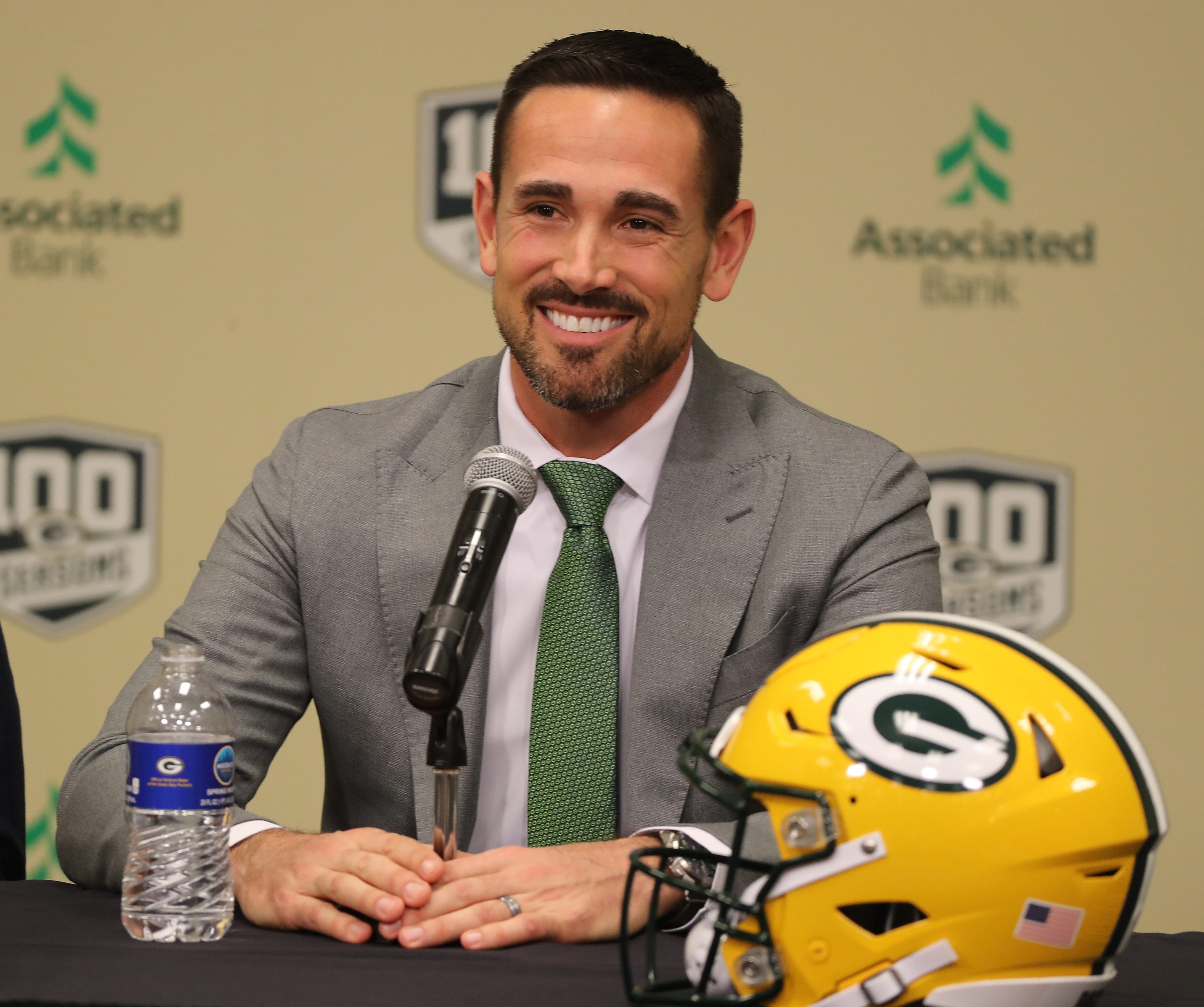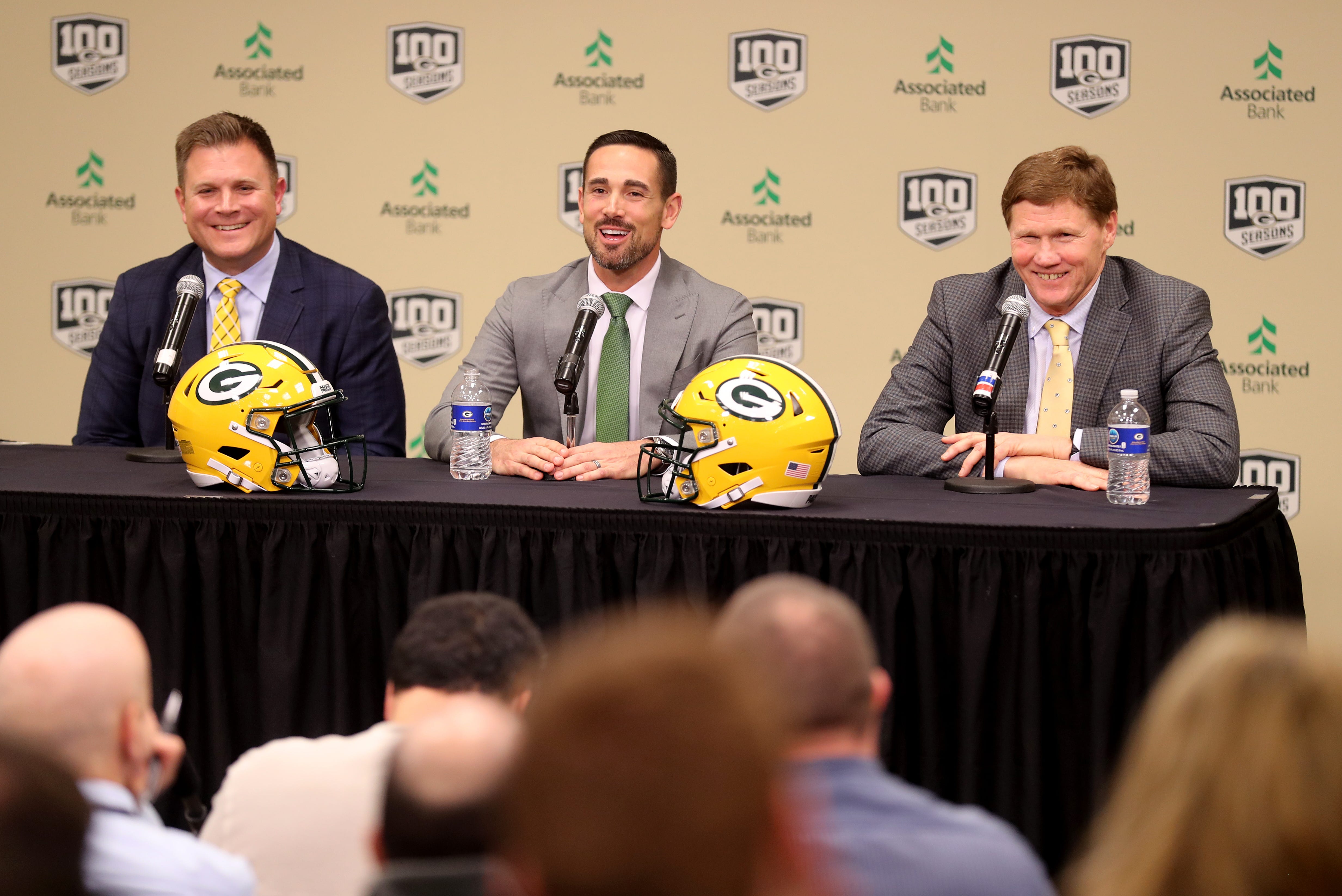Packers' long search turns up 'perfect candidate' in Matt LaFleur
 Jim Owczarski
Jim Owczarski

GREEN BAY - Five weeks, nine interviews, nearly 17 hours of flight time and enough mileage to have crossed the United States twice led the Green Bay Packers to Matt LaFleur in Nashville, Tennessee, at 3 p.m. on Sunday afternoon.
Early Monday morning, the trio of Green Bay Packers decision makers that interviewed LaFleur — President and CEO Mark Murphy, vice president/director of football operations Russ Ball and general manager Brian Gutekunst — decided that the 39-year-old, Mount Pleasant, Michigan, native was their man, the 15th head coach in franchise history.
No second interviews were needed. No other candidates needed to be called. LaFleur didn’t even need to step foot in Lambeau Field. They were smitten, impressed with the Tennessee Titans offensive coordinator’s command, enthusiasm and preparedness.
DOUGHERTY: LaFleur's true test will be working with Rodgers
RELATED: Tennessee ordeal pivotal in preparing LaFleur to be Packers coach
BIO: New Packers head coach Matt LaFleur
CHAT: Pete Dougherty takes your questions Thursday
LaFleur won them over in that conference room at the Nashville Airport Marriott. All three said as much Sunday evening following an interview that lasted three to four hours.
“For me, you try and make this as simple as possible: We wanted someone who could win. That’s what we found in Matt,” Gutekunst said. “We’ve got the perfect candidate to lead us to where we want to go. There’s one goal — always has been one goal — and that’s to win world championships.”
All that followed was a conversation for confirmation between the three on the flight back to Green Bay late Sunday and a meeting with the entire search committee for affirmation the following day at 9 a.m.
“We said this was the right person and decided to move forward quickly,” Murphy said.
LaFleur took the call at about 3:30 p.m. sitting shotgun next to his wife, BreAnne, as they transported their sons Ty and Luke from school.
“I thought we were going to get in a car accident,” LaFleur said. “She was at the wheel. It was incredible. When I tell you I was speechless, I was speechless because there’s just so much tradition here and I can’t think of a greater place to be a head coach in this league, and really in all of sports.
“This is a dream come true for me.”
The process
Beginning with the firing of Mike McCarthy on Dec. 2, Murphy formed a search committee that included Ball, Gutekunst, chief operating officer and general counsel Ed Policy, vice president of human resources Nicole Ledvina and vice president of communications Jason Wahlers.
Internally, Murphy and Gutekunst called together the Packers’ nine-member player leadership council Dec. 31 that featured key players from each position group, including quarterback Aaron Rodgers. No candidates were discussed, but rather the personality traits and leadership style the players were seeking.
Murphy then went outside the organization and tapped into the National Football League’s Career Development Advisory Panel, a group of seven former head coaches and executives that annually provides a list of coaching candidates to teams, and the Fritz Pollard Alliance, which promotes diversity and equality in NFL hiring practices.
The Packers settled on 10 candidates who were interviewed, beginning with former Indianapolis Colts coach Chuck Pagano and former Detroit Lions coach Jim Caldwell during the season. Interim head coach Joe Philbin was interviewed on Jan. 2.
After that, the club flew to New England to interview Patriots offensive coordinator Josh McDaniels and linebackers coach Brian Flores, then to New Orleans to interview Saints assistant head coach Dan Campbell and offensive coordinator Pete Carmichael Jr. and former Tampa Bay offensive coordinator Todd Monken, then to Miami to interview former Miami Dolphins head coach Adam Gase.
“Quite honestly, no one really stood out,” Murphy admitted. “There were a lot of strong candidates, but there wasn’t one that just jumped out at us.”
In-between was a stop in Memphis for re-fueling, a breakdown in the private plane’s global positioning system, and hours of conversation and research.
The travel — and the search — would end in Nashville.
“I probably would have brought our two or three top candidates back for a second interview and may have looked at others,” Murphy said. “But we cast a pretty broad net. In that first month we did, and the committee did really, a good job vetting all the candidates we thought would be out there. We felt good about the 10 we went with.
“And thank God Matt stood out.”
LaFleur wins them over
The Packers were the only team to interview LaFleur for a head-coaching position, a year after the Titans were the only team to do so. He wound up staying in Tennessee to call plays for the man to whom he lost the job, Mike Vrabel. But it was a calculated risk. LaFleur knew that in order to get the job, he had to do the job of a fully-formed offensive coordinator for the first time.
“I thought sometimes, ‘Man, if I would have stayed in L.A., I probably would have had more opportunities,’’ LaFleur admitted. “If you look at it, those guys are getting all the interviews. But I didn’t worry about it, to be honest with you, because I knew in my heart, in order to be the head coach that I wanted to be, I had to do what I did. I had to be in charge of one side of the ball. And then the next step, you have to manage the whole team. It was a necessary step. I knew the risks involved and I took a shot at it, anyways. I’m so glad I did, because I know that it’s going to set me up and really set everybody — our football team up — to have much more success, having gone through some of the adversity that we went through.
That meant going beyond just designing an offense, which he had helped do in Washington, Atlanta and Los Angeles. But he had not called plays. LaFleur knew he had to put together a game plan, install it, coach it — and then call it. The Titans went 9-7 and missed the playoffs, and finished 25th overall in offense and 27th in scoring. They finished 29th in passing but seventh in rushing.
It’s not the stuff of legend.
Perhaps it’s why the Packers were the only team to call him.
But it’s what LaFleur did within those numbers that impressed Murphy, Ball and Gutekunst. It was dealing with injury, calling plays on the fly, and adjusting the plan for players. Then there was his presence, his eagerness.
“I guess that’s easy to say, ‘Wouldn’t anybody be excited to be the head coach of the Green Bay Packers?’" Murphy said. “Well, there’s some candidates that we talked to that were looking at a number of different positions. Maybe they just got fired and are they really excited about this opportunity? With Matt, it was genuine. He was really, really excited about it.”
The Packers had no doubt that had he not taken that risk, had he stayed with the Rams as head coach Sean McVay’s offensive coordinator, he would have had teams lined up out the door to speak to him. Having just gone through the interview process the year before, LaFleur said he had taken a step there as well.
“When you get in that room, you better know who you’re talking about and areas maybe where you want to improve or areas of strength,” LaFleur said of the interview. “So what was cool about this season was I didn’t have to really go through building the (head coach) manual. I could focus on what was really important and that is studying the tape, knowing the roster and trying to figure out that ‘Gutey’ and I are in alignment with what we are seeing.”
The Packers clearly felt not only that they aligned with LaFleur, but they had something special.
Murphy beamed.
“I think we have found a gem in Matt and really excited about the future under his leadership.”
NOTE: The Seattle Seahawks announced that quarterback Russell Wilson will replace the Packers' Aaron Rodgers in the Pro Bowl. Rodgers, who suffered a concussion in the season finale, bowed out of the all-star game due to injury.